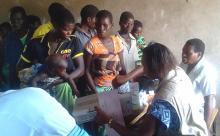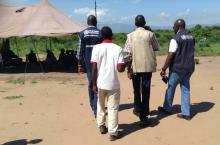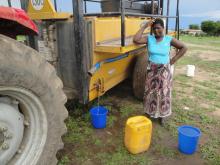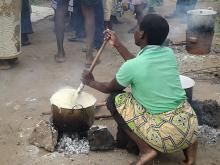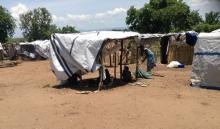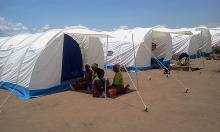WHO continues to support flood victims in Malawi
After intense flooding, WHO Malawi Country Office has been in the field supporting health care delivery to flood disaster victims. This flooding has made 230 000 displaced persons live in temporary shelters, schools, churches and tents and presents complex challenges for many Malawians.
In response, the Minister of Health Dr Jean Kalilani, MP, heads of international agencies including the WHO Representative, Dr Eugene Nyarko visited some of the camps for the displaced people. The Country Office Emergency Response Team (ERT) has also been deployed to support the District Health Management Teams (DHMTs) in Nsanje, Chikwawa, Phalombe and Zomba district.
WHO is providing guidance to the District Health Management Teams through coordination between the health and nutrition clusters at national and district levels. This coordination is reducing the risk of duplication of efforts by partners and providing relief support to the internally displaced people particularly on health. In addition, the four districts have identified resource gaps and are now mobilizing human and financial resources to sustain health service delivery.
One of the gaps that the coordination process identified was in the implementation of outreach mobile clinics to provide continuum of care for the common conditions. The DHMTs in the four districts now have a clear plan of what it will take to provide comprehensive health services to the Internally Displaced Persons (IDP) for three months in terms of number of vehicles, the personnel and their cadres and the amount of fuel required for such services.
In addition, the DHMTs will now be supported to generate weekly epidemiological information for outbreak diseases such as malaria, cholera, measles and typhoid fever. WHO has also provided basic medical kits to the three most affected districts comprising of basic surgical instruments, drugs, stationery and intravenous fluids.
All the levels of WHO (country office, the Harare Inter-country Support Team, the Regional Office in Brazzaville and Headquarters in Geneva) are providing extensive support to ensure the health and safety of Malawians.




